Let’s be honest. Cooking, especially when you have young children, can feel like a huge chore on most days.
In the classroom, it can be messy and complicated to prepare food.
But did you know there are many learning opportunities for young kids when you get them involved? There are also numerous benefits to cooking with children in the classroom.
So, what do toddlers and preschoolers learn from cooking (and making a huge mess)?
Let’s explore some of the many benefits of cooking in early childhood and why it may be worth turning off the TV now and then to encourage your kids to join you.
1. Measurement
Children need to develop their early maths skills during the toddler and preschool years, and one of these skills is measurement.
Cooking is an activity that is filled with opportunities to learn how to measure.
Children learn about capacity and volume as they measure out the vegetable broth, pour spoons of oil, cups of flour and rice, etc. They weigh items on a scale.
They learn about length, size and time through instructions and phrases such as:
- I need a tall pot to cook my spaghetti.
- Please get 3 large potatoes.
- Chop them into small cubes.
- Mix this for 1 minute.
- We need to bake this in a pan that is 20cm long.
Almost every aspect of cooking requires some form of measuring.
2. Number Concept
Cooking with preschoolers and toddlers offers plenty of opportunities to practise counting and develop their understanding of numbers.
The best way to teach maths to young kids is through hands-on, practical experiences.
Let kids count out the ingredients you need, making sure they point to one item at a time as they call out the number (called one-to-one correspondence).
They can count how many bowls they need, how many biscuits they’ve made or how many eggs they’ll need if each person has two.
Setting the table is also a good way to practise counting, by setting one place per person.
3. Following Directions
Learning to listen and follow instructions is an important life skill. Children must follow the verbal instructions that you give as you make the meal together.
Another great opportunity for teaching kids to follow instructions is to use a basic recipe when you cook.
Whether you are reading a recipe off your phone or you have written or drawn pictures of the ingredients and steps on paper or a whiteboard, kids learn that there is a process to follow, if you want the result to be a success.
For toddlers, it is enough to verbalise instructions one at a time as you go but when cooking with 4-year-olds or 5-year-olds, start introducing a physical recipe they can look at, even if they are too young to follow it independently.
4. Early Literacy
Cooking is also a platform for building early literacy skills.
Between lists of ingredients, recipe steps to follow and the labels that are on foods (oil, flour, salt, etc.), children learn how print has meaning and conveys a message.
They also start to recognize common words, especially on food labels they frequently encounter.
5. Sequencing
One of the skills children are learning through cooking is sequencing. This means understanding that events should happen in a particular order.
In cooking, a certain sequence must be followed, or the results will be interesting. Kids learn that you have to mix the ingredients before you can pour them into a baking tray. The vegetables must be soft before you can blend them.
In some recipes, just the quality is affected by the sequence, such as mixing dry cake ingredients first before adding wet ingredients. These activities help show why the order of events is important.
A fun sequencing activity is to make sequence cards (with simply drawn pictures) of the steps you followed and let kids place them in order.
6. Science Concepts
You may presume science concepts start in a laboratory, but in the early years, science is learnt during real-life experiences, starting with butter melting in a pot.
While cooking, children watch all kinds of food materials change form as they are heated, chopped, frozen and defrosted.
They see how two materials can mix (flour and water), how some substances dissolve (the salt disappears in the water) and how water evaporates from the pot when the stew is boiling.
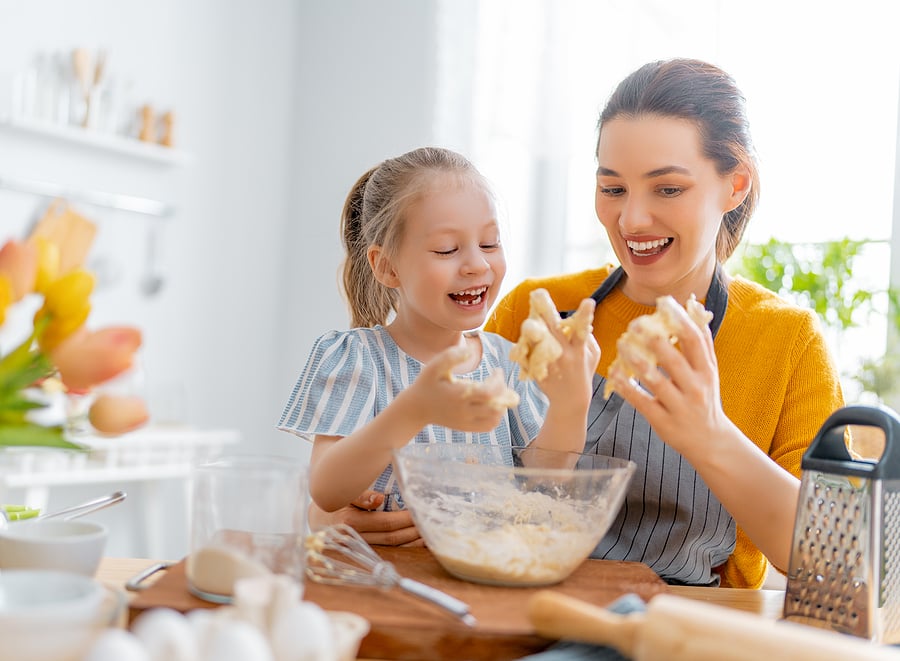
7. Health and Hygiene
The perfect time to chat with kids about food and its role in our lives is during meal preparation.
You can teach them that foods have different kinds of nutrients in them and that some types of foods keep the body thriving and healthy, whereas others should be kept to a minimum.
Children also learn about hygiene as they need to wash some of the foods they use, and clean up after themselves when the cooking is complete.
This is also a good time to teach kids to wash their hands properly before, during and after preparing food. Use fun hand-washing songs for this.
8. Fine Motor Development
Cooking activities are packed with opportunities to develop fine motor skills.
Children strengthen their fingers and develop coordination and control as they learn to peel, dice, stir, spread, break and slice.
Get kids involved as much as possible. Young kids could “help” you chop vegetables with a small blunt knife, or stir the soup as you add ingredients to the pot.
Toddlers may just pretend to help you, but this kind of pretend play is just as important for their learning.
9. Midline Crossing
Cooking provides natural opportunities for children to cross the midline, a skill that helps with reading and writing development in later years.
Crossing the midline means crossing the imaginary line that splits the body in half. An example of this is when a toddler is stirring a big bowl and crosses the right arm into the left side of the body with every stir.
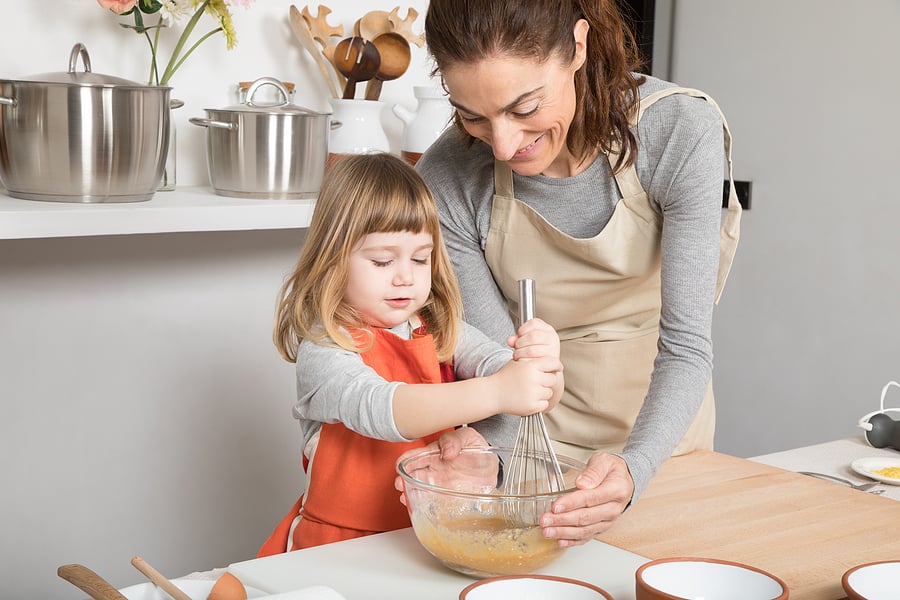
10. Concentration
Any activity that kids find interesting and that holds their attention is also strengthening their concentration span.
Over time, as you keep them engaged and focused on activities, their natural attention starts to improve.
A sanity-saving tip: Keep your kids engaged only for as long as their attention span allows, then let them play or have some screen time so you can finish the rest.
Forcing them to continue when they have lost interest is pointless. A toddler may only be there to wash a vegetable or stir a dish, but as kids get older they will be keen to see the result and stay for the whole affair.
11. Creativity
Like the artist’s atelier, the kitchen is one of those places where creativity comes alive. Many people are passionate about cooking and become their most creative in the kitchen.
Encourage your kids to be creative while cooking. Give them some freedom to choose some of the ingredients, think of a dish to prepare, or tweak the recipe to their individual tastes.
12. Team Work
Cooking together with your child, as a family, or as a class is a team effort. Each person needs to have their role, otherwise, there will be ‘too many cooks in the kitchen”, as the saying goes.
Give kids tasks they can manage, and that are age-appropriate. This could be washing the fruit, collecting the ingredients as you read them out, setting the table or stirring while the pot is on low heat.
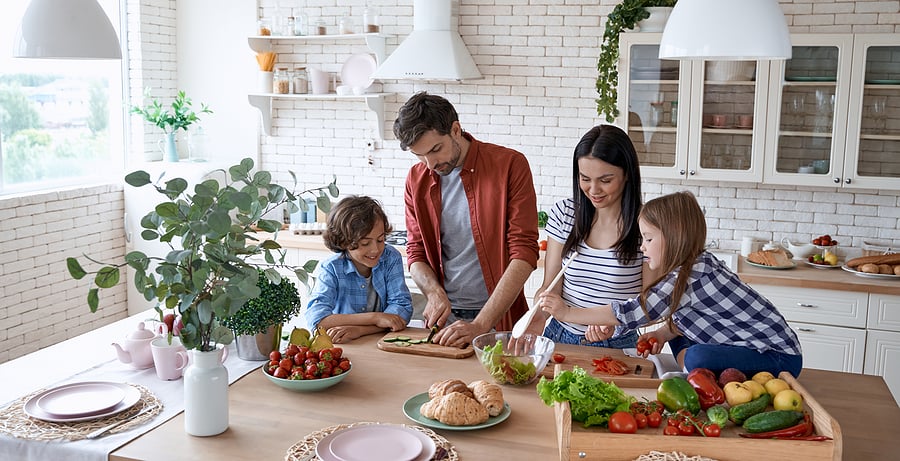
13. Responsibility
Giving a child a task in the kitchen gives them a sense of responsibility and independence.
They might need to stir until the mixture is smooth or set enough places at the dinner table for everyone.
Kids often live up to our expectations of them. If we give them a task and make them feel they are in charge of it, they usually rise to the challenge.
14. Emotional Development
Cooking also has emotional benefits for kids. They learn that they are part of a family unit and that they are helping do their part for the family.
They also experience pride when they have helped create something to eat, especially since they are so used to having an adult prepare food for them.
15. Learning to Cook
Aside from all the developmental skills listed above, what about the fact that your kids will actually be learning to cook? You are passing down your recipes that your kids may use forever.
They will be learning many valuable skills by watching you – simple things you may take for granted – like how to wash and dry lettuce, which vegetables must be peeled or washed, or how to measure the quantity of dry rice per person.
Cooking is a valuable life skill.
16. Bonding Time
At times, this benefit may be the most important one. What could be better than having some undisturbed bonding time with your kids in today’s rushed world?
Your kids will love spending time with you, you’ll have fun together and you’ll make memories. No one ever wished they’d spent less time with their kids.
The importance of cooking with children should not be underestimated. Why not try to get your kids involved in the kitchen more often?
For some ideas, try these cooking activities. They are simple and kid-friendly!
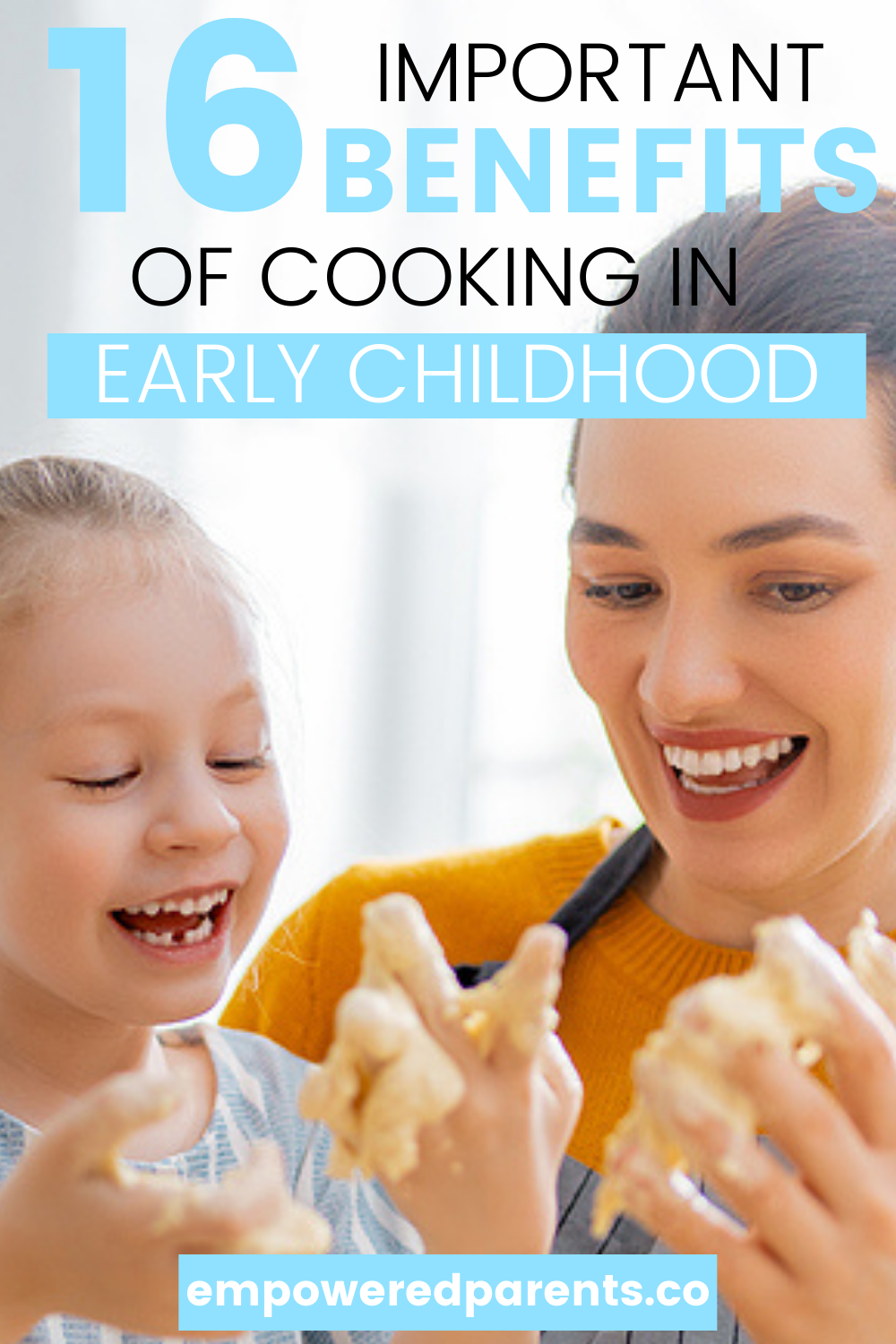
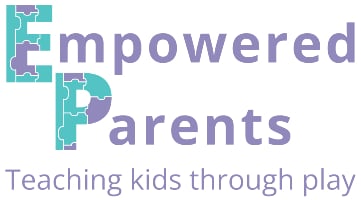
Kathy
Wednesday 26th of July 2023
Love how simple you have made things. Thank you for sharing.
Tanja Mcilroy
Thursday 27th of July 2023
Thanks for your comment, Kathy!